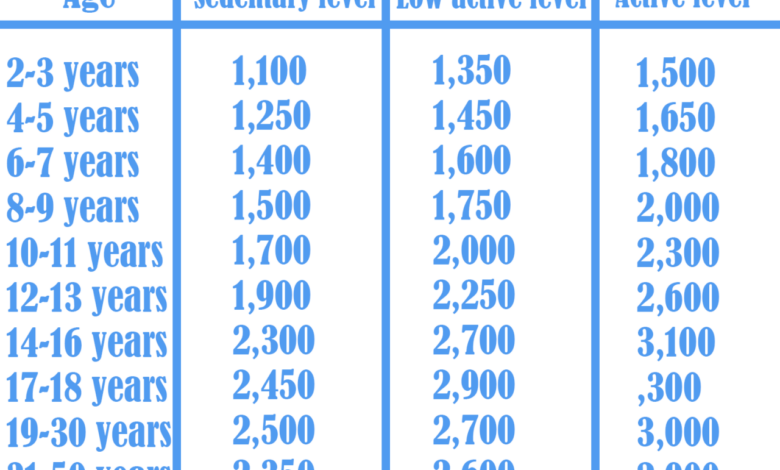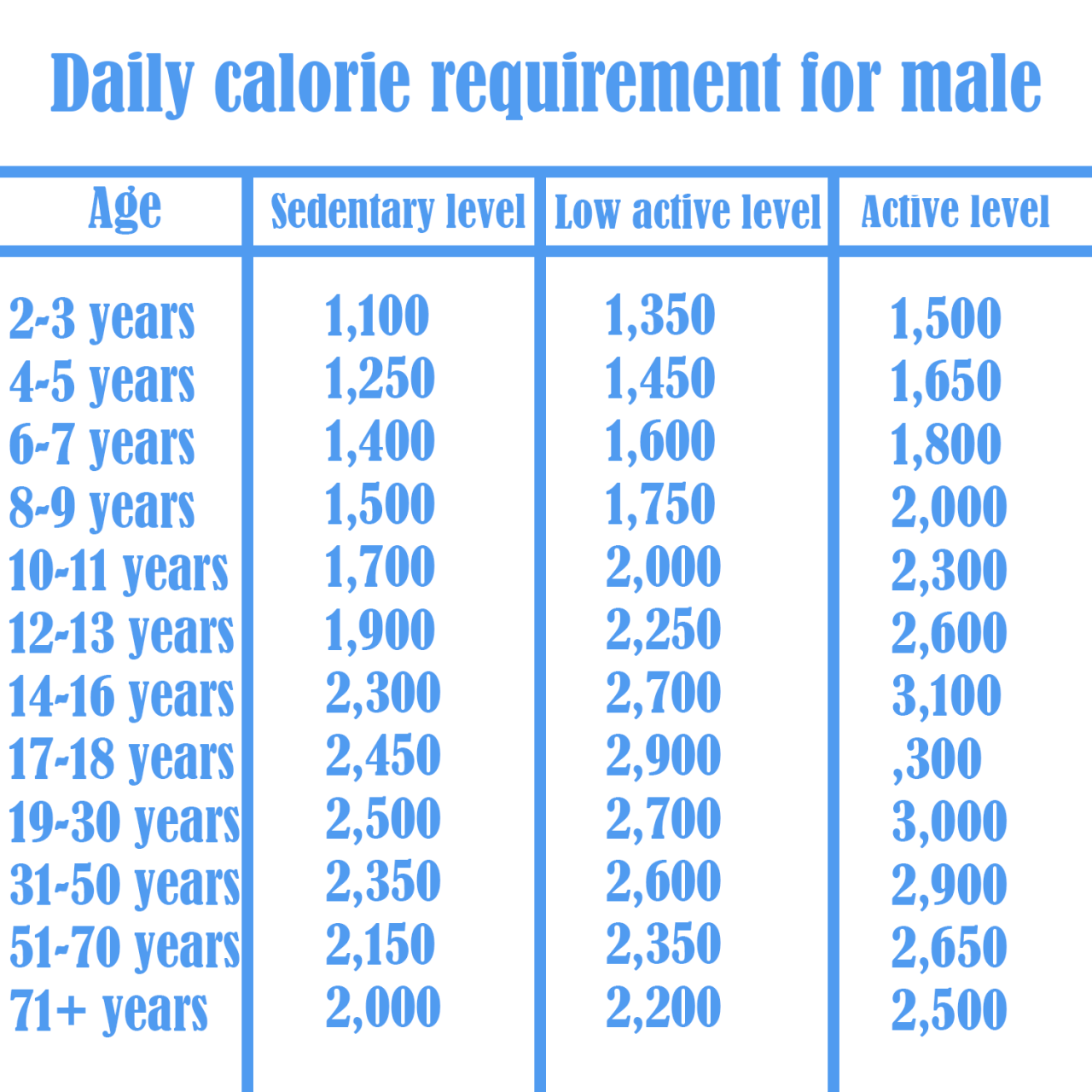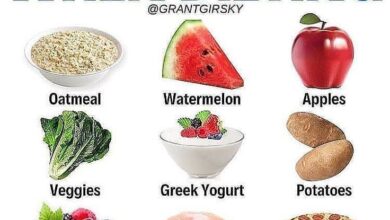
Why Calorie Counting Is a Complex Formula
Why calorie counting is a complex formula is a question that often arises when people embark on their weight management journeys. While the concept of calories and their role in weight loss or gain seems straightforward, the reality is far more intricate.
Numerous factors influence individual calorie needs, making it challenging to pinpoint an exact number that works for everyone.
From the impact of individual metabolism and genetics to the complexities of tracking macronutrients and micronutrients, calorie counting requires a holistic approach that considers multiple variables. This blog post delves into the intricacies of calorie counting, exploring the factors that make it a complex formula and providing insights into how to navigate this challenging aspect of weight management.
The Complexity of Calorie Calculation

While calorie counting can seem straightforward on the surface, the reality is far more intricate. Accurately tracking calorie intake and expenditure involves numerous factors that make it a complex endeavor.
Challenges in Calorie Intake Tracking
Accurately tracking calorie intake is challenging due to various factors that can influence the actual calorie content of food.
- Portion Control:Estimating portion sizes can be tricky. A “serving” can vary significantly depending on the food, and people often underestimate how much they eat. For example, a standard serving of pasta is 1 cup cooked, but many people might unknowingly consume more than that.
Calorie counting isn’t just about adding up numbers on a food label; it’s about understanding how your body processes food, which varies from person to person. That’s why it’s so important to find ways to eat healthily and efficiently, like repurposing leftovers for breakfast! Check out these 5 ways to turn last night’s leftovers into morning’s breakfast for some creative inspiration.
By understanding how your body uses calories and finding smart ways to eat, you can make calorie counting a more manageable part of your healthy lifestyle.
- Hidden Calories:Many foods contain hidden calories, such as those found in sauces, dressings, and condiments. Even seemingly healthy choices like smoothies or salads can be surprisingly high in calories if they contain a lot of added ingredients.
- Variations in Food Preparation Methods:The way food is prepared can also impact its calorie content. For instance, frying a piece of chicken will add more calories than baking it.
The Thermic Effect of Food and Basal Metabolic Rate
The thermic effect of food (TEF) refers to the calories your body burns to digest, absorb, and process food. TEF varies depending on the type of food consumed, with protein having the highest TEF and fat having the lowest. This means that even if you eat the same number of calories from different sources, your body will burn more calories digesting protein-rich foods.
Basal metabolic rate (BMR) is the number of calories your body burns at rest. It is influenced by factors such as age, sex, muscle mass, and genetics. A higher BMR means you burn more calories at rest. Understanding BMR is crucial for calculating calorie expenditure.
Limitations of Calorie Counting Apps and Online Calculators
While calorie counting apps and online calculators can be helpful tools, they have limitations.
- Inaccurate Data:The calorie information provided by these tools is often based on averages and may not be entirely accurate. This is because the calorie content of food can vary depending on the source, preparation method, and even the brand.
- Individual Variations:Calorie counting apps and online calculators often rely on general formulas and may not account for individual variations in metabolism and activity levels. For example, two people with the same height, weight, and activity level may have different BMRs.
Calorie counting isn’t just about crunching numbers; it’s about understanding the complex interplay of your metabolism, activity level, and even your individual body composition. Finding time to cook healthy meals can be a challenge, which is why I’m always on the lookout for quick and easy recipes.
Check out these diets and recipes for 35 minute dinners – they’re perfect for busy nights! And remember, calorie counting is a tool, not a prison. Use it to make informed choices, but don’t let it rule your life.
- Lack of Personalization:Many apps and calculators do not take into account individual dietary needs and preferences. For example, they may not provide options for specific dietary restrictions or allergies.
Beyond Calories
While calories are a crucial aspect of energy intake, they tell only half the story. Understanding the composition of those calories, in terms of macronutrients and micronutrients, is equally important for overall health and well-being.
Macronutrients: The Building Blocks
Macronutrients are the essential nutrients our bodies need in large amounts. They provide energy and are vital for building and maintaining tissues. The three main macronutrients are:
- Protein:Essential for building and repairing tissues, producing enzymes and hormones, and supporting immune function. Protein is crucial for muscle growth and maintenance, especially during exercise.
- Carbohydrates:The body’s primary energy source, providing fuel for brain function, physical activity, and various bodily processes. Carbohydrates are categorized into simple and complex forms, with complex carbohydrates offering sustained energy release.
- Fats:Important for hormone production, cell function, and insulation. Fats provide concentrated energy and contribute to satiety. Different types of fats, such as saturated, unsaturated, and trans fats, have varying impacts on health.
Micronutrients: The Vital Players
Micronutrients are essential for various bodily functions, although they are needed in smaller amounts compared to macronutrients. These include vitamins and minerals, which play crucial roles in:
- Energy Production:Vitamins like B vitamins are essential for converting food into energy. Minerals like iron are crucial for oxygen transport.
- Immune Function:Vitamins C and D, along with minerals like zinc, support a robust immune system, protecting against infections.
- Bone Health:Calcium and vitamin D are essential for strong bones and teeth. Magnesium is also vital for bone health and muscle function.
- Cell Function:Micronutrients are involved in various cellular processes, including growth, repair, and communication.
Macronutrient Ratios and Body Composition
The proportion of macronutrients in a diet can significantly influence weight management and body composition.
Different macronutrient ratios can lead to different metabolic responses and impact how the body uses energy.
- High-protein diets:Often associated with increased satiety, muscle growth, and potential for weight loss. These diets can be beneficial for athletes and individuals seeking to build muscle mass.
- High-carbohydrate diets:Provide ample energy for physical activity and may be beneficial for endurance athletes. However, excessive carbohydrate intake can lead to weight gain and other health issues.
- High-fat diets:Can provide sustained energy and promote satiety. However, excessive saturated and trans fat intake can increase the risk of heart disease and other health problems.
Individual Factors and Calorie Counting
Calorie counting, while seemingly straightforward, is significantly influenced by individual factors. These factors go beyond just your activity level and can significantly impact your calorie needs and weight management journey.
Genetics and Metabolism
Genetics plays a crucial role in determining your basal metabolic rate (BMR), which is the number of calories your body burns at rest. Individuals with a higher BMR tend to burn more calories even when inactive, making it easier for them to maintain a healthy weight.
Conversely, those with a lower BMR may find it challenging to lose weight, even with moderate calorie restriction.
Calorie counting is a complex formula, factoring in individual metabolism, activity levels, and even the time of day. It can be frustrating when your efforts seem stagnant, but remember, there are ways to break through! Check out these 6 proven ways to get out of a meal prep plateau for some fresh inspiration.
Ultimately, finding success with calorie counting is about finding the right balance for your unique body and lifestyle, so don’t be afraid to experiment and adjust as needed!
Hormonal Factors
Hormones, such as thyroid hormones and insulin, play a vital role in regulating metabolism. Imbalances in these hormones can significantly affect your calorie needs and weight management. For example, hypothyroidism, a condition where the thyroid gland doesn’t produce enough thyroid hormone, can lead to a slower metabolism and weight gain.
Similarly, insulin resistance, a condition where cells don’t respond properly to insulin, can lead to increased fat storage and weight gain.
Impact of Stress, Sleep, and Lifestyle Choices
Stress, sleep, and lifestyle choices can also influence your calorie expenditure and weight. Stress can lead to an increase in the production of cortisol, a hormone that can increase appetite and promote fat storage. Chronic sleep deprivation can also disrupt hormonal balance and lead to weight gain.
Lifestyle choices, such as physical activity levels, dietary habits, and exposure to environmental toxins, can also impact your calorie needs and weight management.
Common Misconceptions and Myths
There are several misconceptions and myths surrounding calorie counting that can hinder your weight management efforts.
- All calories are created equal.The truth is that the source of calories matters. Calories from whole, unprocessed foods provide more nutrients and satiety than calories from processed foods. For example, 100 calories from a piece of fruit will provide more vitamins, minerals, and fiber than 100 calories from a candy bar.
- You need to drastically reduce your calorie intake to lose weight.While calorie restriction is essential for weight loss, it’s important to find a sustainable deficit that you can maintain over time. A gradual reduction of 500-1000 calories per day is generally recommended for healthy weight loss.
- Calorie counting is the only way to lose weight.Calorie counting can be a helpful tool, but it’s not the only way to achieve weight loss. Focusing on making healthy lifestyle changes, such as eating a balanced diet and getting regular exercise, is equally important.
Sustainable Strategies for Calorie Management: Why Calorie Counting Is A Complex Formula
Calorie management is a critical aspect of achieving and maintaining a healthy weight. While counting calories can be helpful, it’s crucial to adopt sustainable strategies that promote long-term well-being. This involves incorporating mindful eating habits, practicing portion control, and making gradual changes to your lifestyle.
Approaches to Calorie Management
Different approaches to calorie management can be tailored to individual needs and preferences. Here’s a table outlining some common methods:
| Approach | Description | Benefits | Drawbacks |
|---|---|---|---|
| Mindful Eating | Paying attention to hunger and fullness cues, savoring meals, and avoiding distractions while eating. | Increased awareness of food intake, reduced overeating, improved enjoyment of meals. | May require conscious effort and time to develop. |
| Portion Control | Using smaller plates, measuring food portions, and being aware of serving sizes. | Helps control calorie intake, promotes balanced meals, and reduces waste. | May require initial adjustments and planning. |
| Calorie Tracking | Using apps or journals to record food intake and monitor calorie consumption. | Provides a clear understanding of calorie needs, helps identify areas for improvement, and promotes accountability. | Can be time-consuming and may lead to obsessive tracking. |
Diet Plans: Pros and Cons, Why calorie counting is a complex formula
Various diet plans have gained popularity for weight management, each with its own set of benefits and drawbacks. This table compares some common approaches:
| Diet Plan | Description | Pros | Cons |
|---|---|---|---|
| Low-Carb Diet | Restricting carbohydrate intake while emphasizing protein and healthy fats. | Rapid weight loss, increased satiety, potential for improved blood sugar control. | May lead to nutrient deficiencies, potential for fatigue, and difficulty sustaining long-term. |
| Ketogenic Diet | A very low-carb, high-fat diet that forces the body to enter ketosis. | Significant weight loss, potential for improved cognitive function, and reduced appetite. | May lead to nutrient deficiencies, digestive issues, and potential for adverse effects on kidney function. |
| Intermittent Fasting | Cycling between periods of eating and fasting, rather than restricting specific foods. | Weight loss, improved insulin sensitivity, and potential for reduced inflammation. | May lead to hunger and fatigue, not suitable for everyone, and potential for nutrient deficiencies. |
Incorporating Healthy Habits
Adopting healthy habits is crucial for sustainable calorie management and overall well-being. Here are some practical tips:
- Cook at home more often:This allows you to control ingredients and portion sizes, promoting healthier choices.
- Choose nutrient-dense foods:Prioritize fruits, vegetables, whole grains, and lean protein sources.
- Stay hydrated:Drinking plenty of water helps curb hunger and supports overall health.
- Get enough sleep:Adequate sleep helps regulate hormones that control hunger and metabolism.
- Engage in regular physical activity:Exercise burns calories and improves overall health.
Final Thoughts
Understanding why calorie counting is a complex formula is crucial for anyone aiming to achieve their health and weight goals. While the exact calorie needs vary from person to person, focusing on a balanced diet, mindful eating habits, and a healthy lifestyle is essential.
By considering the intricate factors that influence calorie needs, individuals can make informed choices that support their overall well-being and lead to sustainable results.






